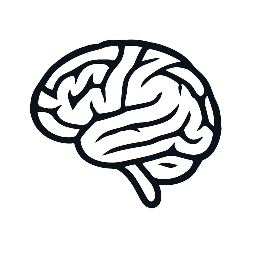Making decisions is an integral part of everyday life. From simple choices like what to eat for breakfast to more complex ones, such as career moves or financial investments, the quality of our decisions significantly impacts our outcomes and overall satisfaction. Incorporating strategic processes into personal decision-making can enhance clarity, reduce impulsivity, and lead to more favourable results. This article explores how strategic processes improve personal decision-making and why adopting them is beneficial.
Understanding Strategic Processes in Decision-Making
Strategic processes refer to systematic steps or methods applied to analyse situations, weigh options, and choose the best action. Unlike spontaneous or purely intuitive decisions, strategic decision-making involves planning, evaluation, and foresight. It encourages individuals to consider long-term consequences, align choices with goals, and minimise the influence of biases or emotions.
Key Ways Strategic Processes Enhance Personal Decision-Making
- Clarifying Goals and Priorities
Strategic decision-making begins with a clear understanding of one’s objectives. Individuals can filter options that align with their values and aspirations by defining what matters most. This clarity helps avoid distractions and ensures decisions contribute to meaningful outcomes. - Gathering and Analysing Information
A strategic approach involves collecting relevant data and considering different perspectives. This prevents decisions based on incomplete or inaccurate information. Thorough analysis helps identify potential risks and benefits, enabling more informed choices. - Exploring Alternatives
Rather than settling on the first available option, strategic processes encourage brainstorming multiple alternatives. This broadens the decision space and increases the likelihood of finding optimal solutions. - Weighing Pros and Cons
Systematically evaluating the advantages and disadvantages of each alternative helps quantify trade-offs. Tools like decision matrices or pros-and-cons lists can facilitate this process, making decision factors more explicit. - Anticipating Consequences
Strategic decision-making involves forecasting short-term and long-term outcomes. Considering the possible impact of decisions on personal, professional, and social aspects reduces unintended adverse effects. - Reducing Emotional Bias
Emotions can cloud judgment and lead to impulsive choices. Strategic processes incorporate reflective thinking and sometimes seek external input to balance emotional responses, leading to more rational decisions. - Enhancing Confidence and Accountability
HAstructured approach builds confidence in decisions because they are well thought out. It also fosters accountability because the rationale behind choices is clear and documented.
Practical Strategies to Incorporate Strategic Processes
- Set SMART Goals: Specific, Measurable, Achievable, Relevant, Time-bound goals provide a clear direction for decisions.
- Use Decision-Making Tools: Techniques such as SWOT analysis, decision trees, or the Eisenhower matrix can organise thoughts and priorities.
- Seek Feedback: Consulting trusted friends, mentors, or professionals can provide new insights and reduce blind spots.
- Reflect and Learn: After decisions, reviewing outcomes helps refine future decision-making strategies.
- Manage Stress: Practices like mindfulness or meditation improve focus and reduce impulsivity during decision-making.
Conclusion
Integrating strategic processes into personal decision-making transforms how individuals approach choices, leading to more deliberate, informed, and effective outcomes. By clarifying goals, systematically evaluating options, and anticipating consequences, people can navigate life’s complexities more confidently and succeed. Embracing these methods improves immediate decisions and cultivates lifelong skills for personal growth and achievement.




Leave a Reply